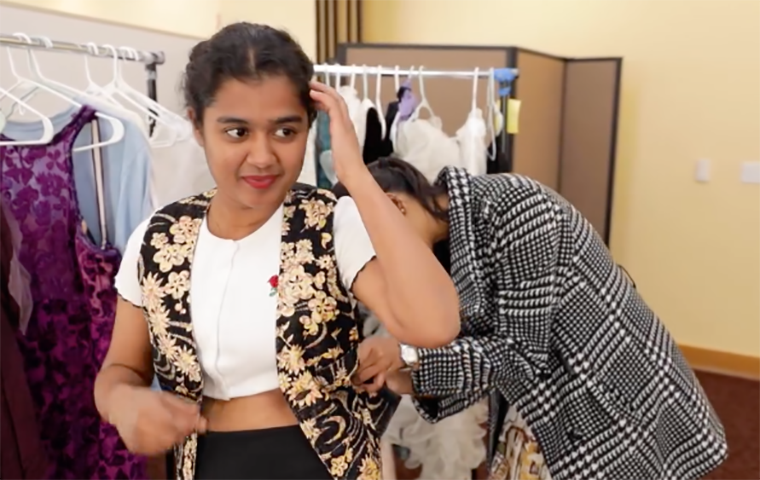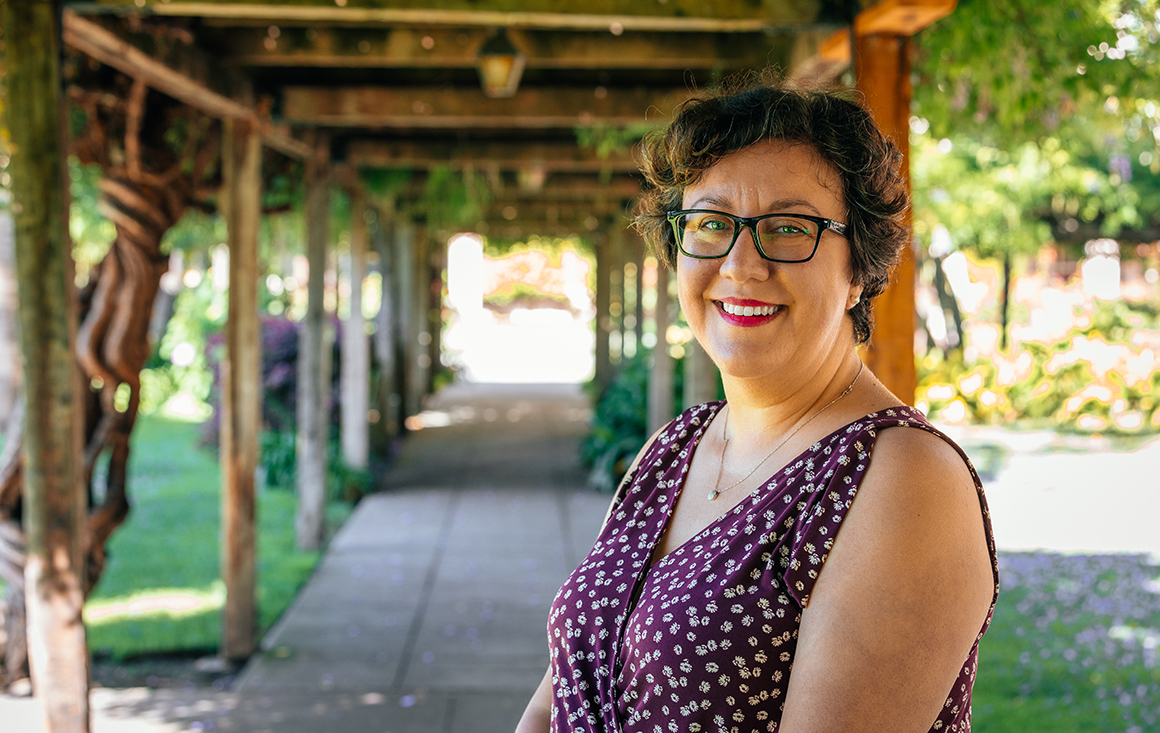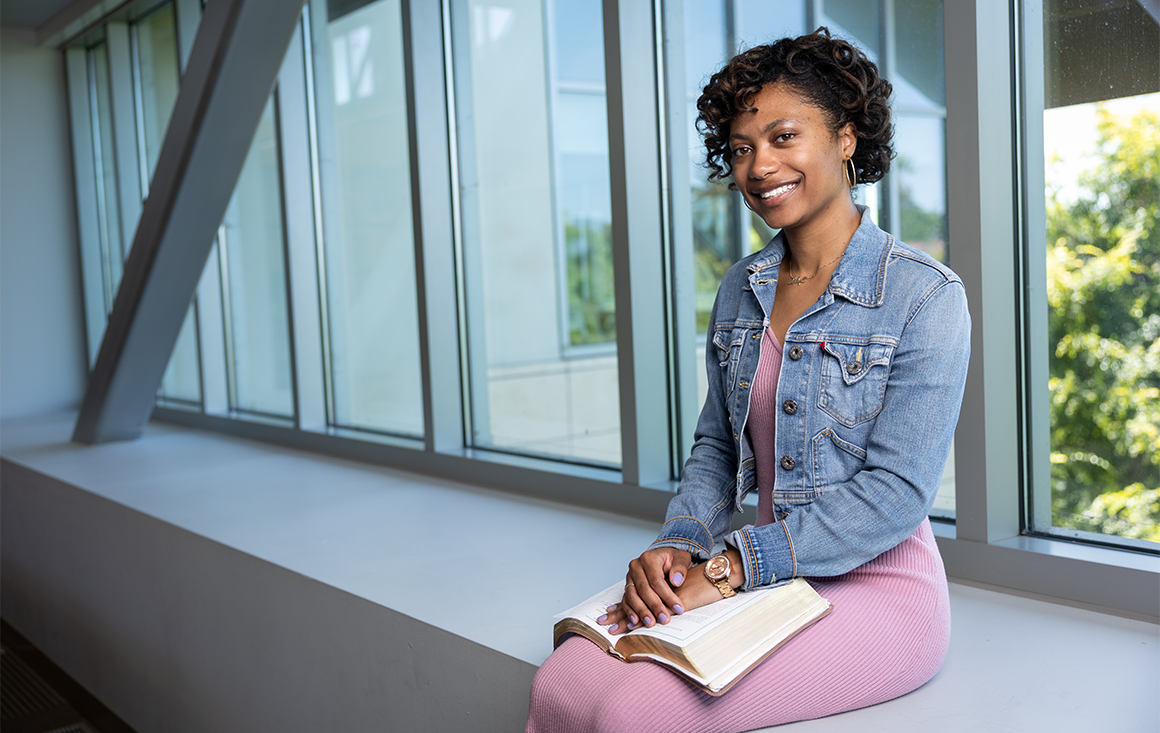Matthew Mayo '24 Learned to Lead for Others. It Got Him a Job at Google.
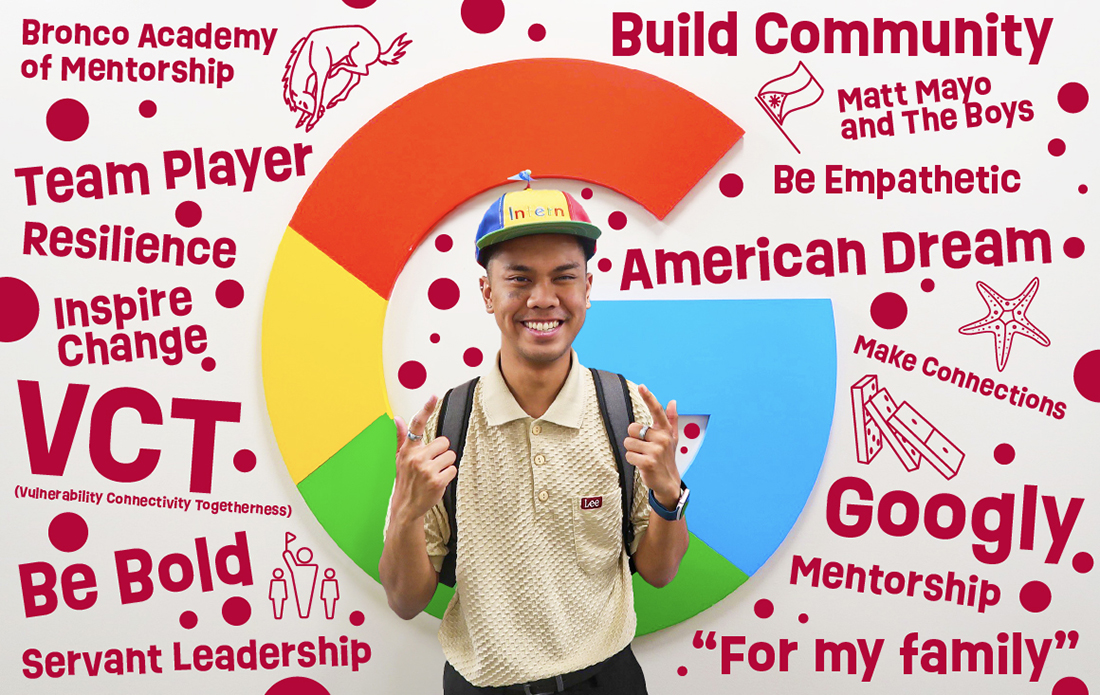
From a young age, Matthew Mayo ’24 has approached life with the kind of wisdom and determination he inherited from his late grandfather, a Filipino engineer who immigrated to the United States to create a better life for his family.
“My grandfather taught me a lot about resilience and grit and maximizing my resources,” says Mayo. “It’s something I always try to do as a leader. The other part of leadership I learned from him is to take the initiative and make an impact not just for yourself, but for others. Because what is success if you don’t have people to share it with?”
Mayo likens his grandfather’s advice to the “Starfish Story,” about a boy who comes across droves of starfish washed up on the shore and tries to save them by throwing each one back into the ocean. When an old man walks by and tells the boy he won’t be able to rescue all of the starfish, the boy replies, “Well, I just saved that one, and that one, and that one,” and continues to throw more starfish back into the water.
“That’s the kind of mindset I've had in college, and before that,” says Mayo. “Even if I can’t touch everyone, I’m going to continue to throw those starfish back into the water, and I’m going to continue to impact as many lives as I can throughout my life.”
At Santa Clara, Mayo has tried to practice what he’s preached: notably, founding the Bronco Academy of Mentorship last year to help newbies adjust to college life and make the most of their time here. As a member of the Leavey School of Business’s ACE Leadership program, he participated in seminars, internships and alumni opportunities that teach students about ethical and caring business leadership. Mayo also made time to play intramural basketball and beach volleyball, sing at Barkada of SCU’s Annual (Filipino) Cultural Show, and even started his own pop music band, “Matt and The Boys,” that has played gigs on and off campus.
As the business management major heads off to a full-time job at Google this summer in its People Operations Team, Mayo says he'll take with him all the valuable insights he gained, and the friendships he made, during his time at Santa Clara.
Making an impact by helping others has been a lifelong credo of yours. What started you thinking this way?
One of the experiences that really shaped me was being my high school class president for all four years. I made a tradition where before every pep rally, I invited my entire class cabinet of 30 people over to my family's house to have a potluck. We’d make posters together, share stories, and really get to know each other. I think that's where I was able to identify my leadership style, which is relationship-based leadership, and has kind of shaped who I’ve become.
I also got together with a bunch of people I met through leadership conferences from different high school programs across the country and we ended up creating a mentorship program called Student Led (SLED), where college mentors from different states advise high schoolers from different high schools. That experience taught me a lot about setting your mind to something with an intention to be impactful.
Was that the template you used for the Bronco Academy of Mentorship program at Santa Clara?
That’s right. We call it BAM, for short, and it’s a registered student organization directed at first and second-year students looking for mentorship around their majors, or professional advice, or honing their interpersonal or self-growth skills.
Each mentee who enters our program gets two mentors, who are third and fourth-year students. And throughout this journey of personal reflection and self-introspection, they are doing it alongside other mentees. It’s not just about mentorship, it’s about vulnerability, connectivity, and togetherness. We call it VCT, and it’s something we like to foster throughout BAM.
One of my favorite things we do is the “This is Who I-BAM” Project. Basically, you get four minutes on stage in front of everyone where you answer the question: “Who am I on the surface?” And you also talk about what’s beneath the surface, and what are the things you’re struggling with at college? And knowing this about yourself, how do you spend the rest of your time at Santa Clara?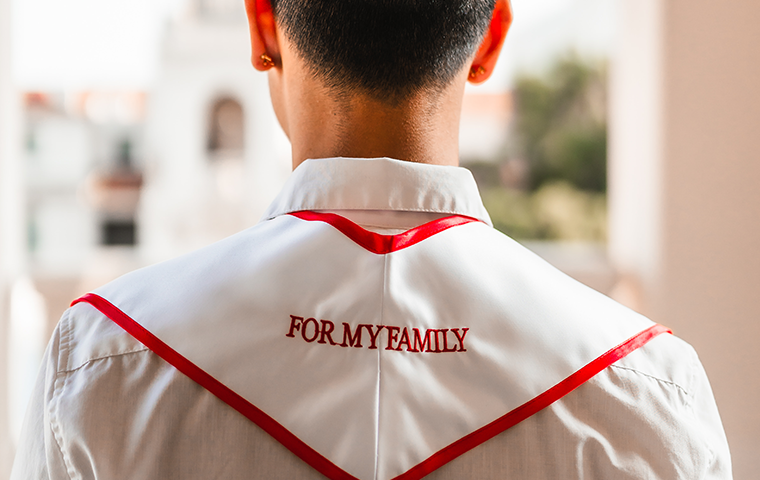
What kind of impact has BAM had at SCU?
We’ve had around 35 mentees and 20-plus mentors, and hopefully, it scales even more after I graduate. The way I like to see BAM is kind of like a lost-and-found club, where people who are looking for a community can find that in BAM, along with a lot of internal reflection. I’m definitely proud of how seriously people have taken the program, how far our team has come, and seeing them take the keys and drive the car now.
Another big priority when I created the program was to have diversity, and when I mean diversity, it’s not just race, color, and ethnicity. It also means gender. It means socio-economic status. It means sexual orientation. It means diversity of thought. I'm a firm believer that if you can see it, you can be it.
For me, it all goes back again to that starfish story: maybe we're not touching every single first-year or second-year student who comes to Santa Clara. But we've made some really big impacts on some of the students, and to me that makes all the difference.
Why did you choose Santa Clara?
I got a good scholarship. But I also knew about the heavy emphasis on the three C’s at Santa Clara—competence, conscience, and compassion—values that I believe in and try to live by. The student-to-professor ratio also meant I would have the opportunity to really connect with professors. And if I wanted to get involved in something, or create something at school, I would have the best chance of doing so at Santa Clara, where the community of people is not only very supportive, but the class sizes meant I’d get the chance to really build and sustain relationships.
“The Internship,” a movie about two down-on-their luck salesmen who devise an internship at Google, inspired your dream at age 11 to someday intern at the tech company, which you did last summer. Now you’re headed to a job in their Chicago office. What will you be doing?
The People Operations branch at Google is exactly what it sounds like, where you’re the main managers of people, but also all of the systems behind the people. One of my main objectives last summer was helping move certain tasks from the Google internal onboarding platform over to the Workday platform. Starting in July, my role could be more on the project management side, or it might be front-facing, like recruiting, or it could be the other people management systems, whether that’s payroll or working on HR.
The movie also introduced you to the term “Googly.” What does that mean to you?
That’s a great question. I think being Googly means something different to every person. Speaking for myself, I think one of the baselines of it is being empathetic. It’s being able to put yourself in the shoes of other people, and to slow down your role on things you don’t understand. That’s a big deal, especially when it comes to social justice issues in America: being able to take a step back and know that if I’m not the subject matter expert on something, it means me listening first, and then having an opinion.
Googly also means being authentic, and I think that goes hand in hand with what leadership is. I don’t think the best leaders are perfect, but I think the best leaders are authentic, and that's why people believe in them. And that’s why people follow them, because they're authentic in who they are, and they’re willing to be vulnerable and share when they make a mistake, share when another teammate triumphs, and ultimately are able to just unapologetically be themselves.
What’s a quote that best describes your most authentic self?
I think the quote that comes to mind, as cliché as it might sound, is: “Be the change you wish to see in the world.”
When I helped to build BAM, I hoped to create a domino effect for people not just here, but beyond their time at Santa Clara, so that the next mentee who joins the program uses that to help whoever’s next after them. It’s a concept that my grandpa instilled in me and my family: you should help others, because at one point, you got help, too.
Who are some of the people you’ll remember who helped you along the way at Santa Clara?
The Bronco network definitely runs deep at Google. Isabella Drascovic ’21 at the Career Center referred me to Google when I was a junior, and Janine Bautista ’20, who works at Google, helped me with anything I needed.
Brenda Versteeg ’97, MBA ’07, who I met as a part of the Ace Leadership Program in the business school, played a pivotal role in me getting an internship at Google last summer.
Assistant Professor Hooria Jazaieri ’10, M.A., and Lecturer Fiona Xiaoying Ji both gave me career or professional development advice and have been great sounding boards for me.
Again, my success at Santa Clara wasn't necessarily because of something that I did on my own. It was the team that helped me get there.
Business management majors gain a broad perspective of the challenges faced by business today, and develop the skills and abilities needed to become a leader in successful organizations, large or small.
Learn more about management at the Leavey School of Business.
